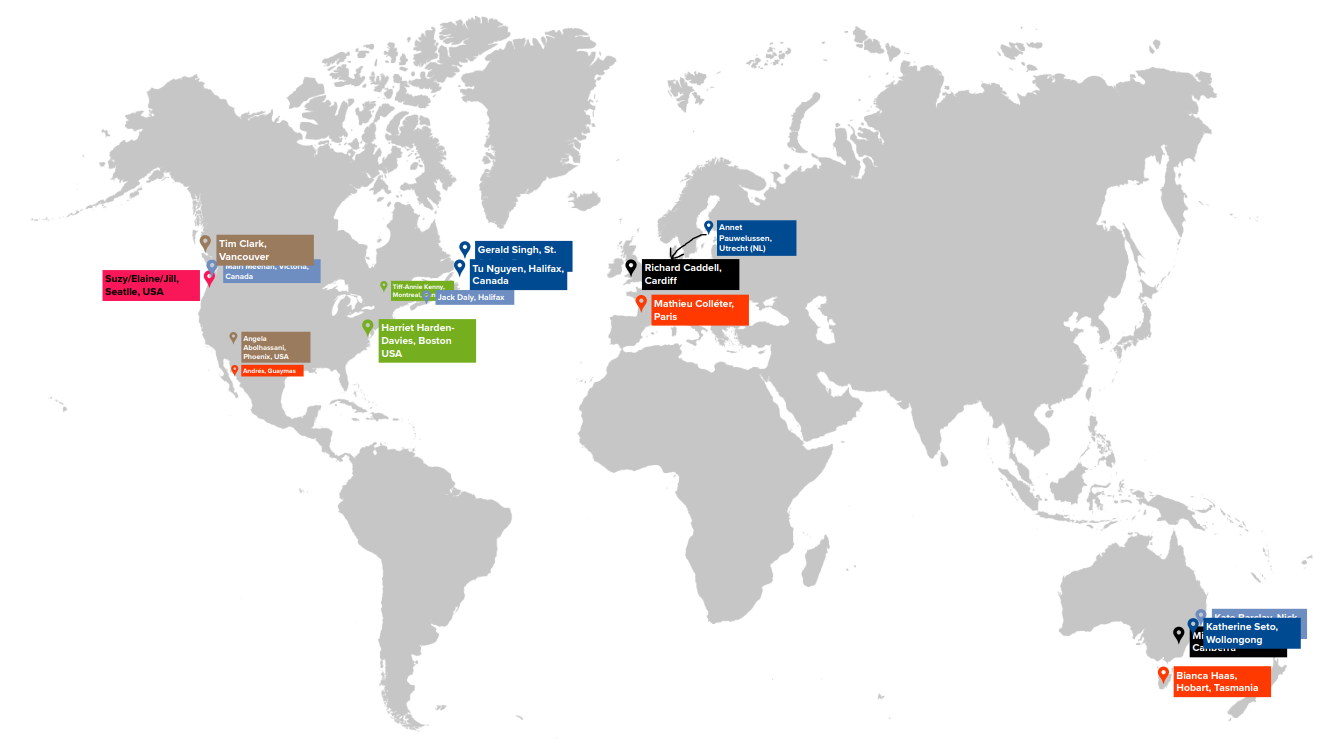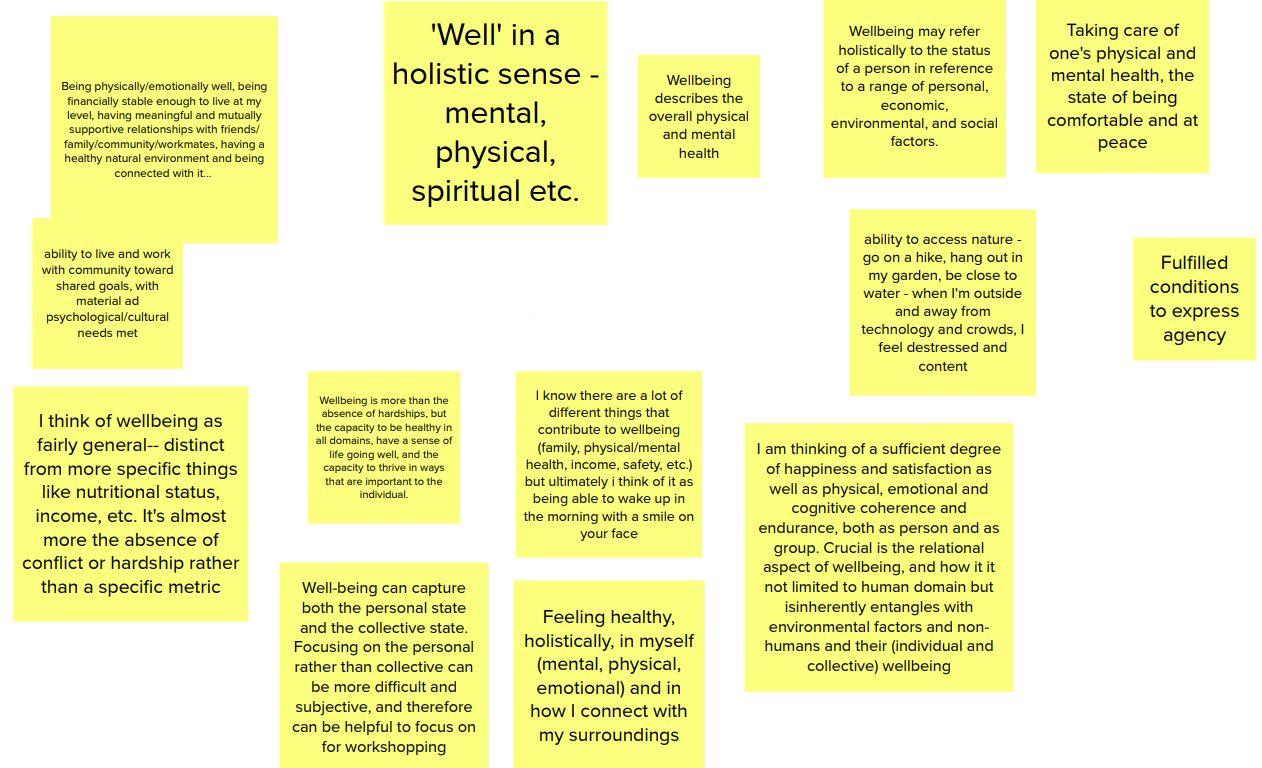For discussions, participants were sometimes asked to use MURAL as a digital canvas to collaborate and discuss within groups. Learn more details about MURAL from our MURAL page.
Pre-Survey Question Examples
Prior to attending the workshop, participants were asked to complete a pre-survey through MURAL.
Q1. Where in the world are you from?

Q2. What does well-being mean to you personally?


Click here to view links to full MURALS
‘Problems with Well-Being and Gaps’ - Interactive Discussion led by Tiff-Annie Kenny
Is well-being a useful construct?
- Person 1: In Wales, in our study we went through every mention of well-being in every Welsh policy document and we found 125 different references to well-being, each of which meant something different. Even as a tiny jurisdiction that put well-being at the center, every policy area has different standards and two seperate well-being statutes. Their constructs of well-being are dramatically different.
- Person 2: How do we operationalize this idea of well-being? How do we apply it meaningfully?
- Person 3: My concern is that the concept of well-being might be easily co-opted by actors or organizations wishing to maintain the status quo rather than doing anything to materially change it. Some firms and organizations have made initiatives that could be considered related to well-being, but my concern is particularly about how to avoid co-optation.
- Elaine: Good comments Tim – Did you see some of the frames that put individuals and local communities in the center? We did not go into some of the extended literature but there are ways to use values based approaches that can lead to better “valuation” of these more difficult concepts. We did not go into some of the extended literature but there are ways to use values based approaches that can lead to better “valuation” of these more difficult concepts
- Person 3: Yes, I think that strategy seems essential Elaine
- Person 4: I get the idea of fuzziness and that an idea can be difficult to agree on. But there’s a huge danger in pretending that we can accurately measure huge concepts. I think this plagues a lot of other disciplines as well. If you start making a specific measure for it, organizations might operationalize it rather than debating what it is we’re really talking about. There’s a real value about the more discursive side of figuring it out… The philosophical issue I was trying to address is “reification” - when an abstract concept is treated as a concrete and measurable phenomenon. Reification itself often creates power dynamics, as it often leads uptake of a particular view that can negate the perspectives of others under a guise of “objectivity.”
What are your concerns and/or criticisms of the well-being concept?
- Legibility, complex, multifactorial, disparate definitions, vagueness/unclear, implementation problems, context-dependent, qualitative, subjective, no criteria
Experiences with the well-being concept or similar nebulous concepts, recognizing the limits and critiques where the concept has still proven useful?
- Elaine: From a health and medical standpoint, we have a portfolio of tools to measure things like stress through different quantitative metrics. Saying we don’t have physical measures of stress isn’t true, but the methods haven’t been widely used or misused.
- Person 1: I’m a bigger fan of a portfolio of measures then getting at a signal ro narrow range of measures purporting to define “well-being”
- Laurie: I somewhat disagree and I think that we are able to quantify well-being. Everyone does measure it differently, but it is difficult to find some sort of benchmark.
- Elaine: Yes I do agree Laurie I am just saying that we often don’t even include these other measures
- Laurie: Yes. I agree!
The concept of well-being is often equated to wellness (emotional, mental, physical health). How/can this issue be addressed or resolved?
- Person 1:: Engaging stakeholders and including them, not leaving this conversation up to the academic community. Use tangible information and provide the tools and resources for them to construct their own definitions.